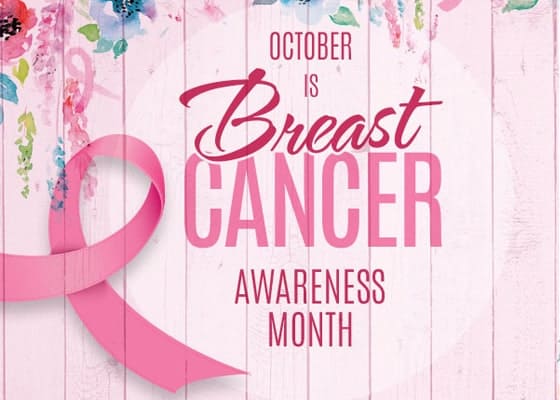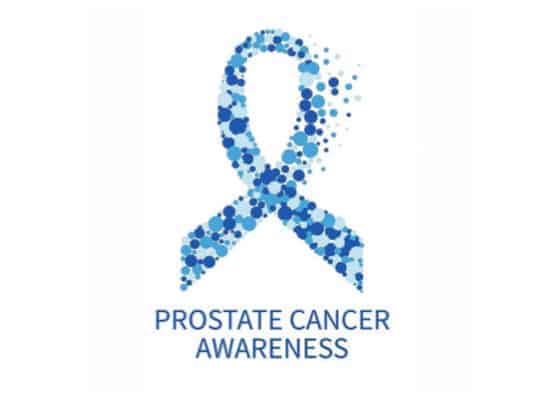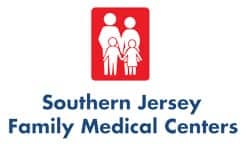- Home
- Services
- Healthy Living
- What’s New
- Your Visit
- About Us
- Contact Us
- Find a Provider
- Patient Portal
x
 COVID-19
COVID-19SJFMC continues to put your safety first. For the latest information on how to protect yourself, vaccines, testing and more, click here.
Need Insurance? The 2020 Marketplace will open soon
Enroll by December 15, 2019, and coverage starts January 1, 2020. 2020 plans and prices will be available to preview shortly before November 1. If you don’t act by December 15, you can’t get 2020 coverage unless you qualify for a Special Enrollment Period. Please call SJFMC at 1-800-486-0131 for more information.

SJFMC Continues to Break Down Barriers for Breast Cancer Awareness Month
By Dr. Judith Ruffin, Medical Director, Women’s Health Breast cancer is all around us. Just think about it—about one in eight women (12%) will develop invasive breast cancer during her lifetime, according to the American Cancer Society. You probably know someone who has been affected by breast cancer and may even be a survivor yourself. The CDC reports that deaths from breast cancer are decreasing among Hispanic, Caucasian and African American women. But there is still disparity among women of color as breast cancer death rates are up to 40% higher among African American and Hispanic women compared to Caucasian women. As a part of a federally qualified health center, you may understand some of the barriers to care that contribute to these findings. Limited breast cancer screening secondary to lack of insurance, rising health care costs, lack of access to care, failure to follow-up, fear of bad news, recent migration, and cultural and language differences can delay or prevent needed early detection and intervention to ensure survival in our patient population. Tumor genetics and biology as well as management of risk factors also contribute to the difference in survival rates among women of color.
 Thankfully, here at Southern Jersey Family Medical Centers, we make it our mission to eliminate financial and cultural barriers to care. Join us as we spread the word, boost awareness and raise money for this deadly disease. Let’s do our part to make sure our patients are protected—and remember, most women can survive breast cancer if it’s found and treated early.
Thankfully, here at Southern Jersey Family Medical Centers, we make it our mission to eliminate financial and cultural barriers to care. Join us as we spread the word, boost awareness and raise money for this deadly disease. Let’s do our part to make sure our patients are protected—and remember, most women can survive breast cancer if it’s found and treated early.- Women aged 40 to 49 should discuss mammogram screening recommendations with their providers. We encourage women to have mammograms every one to two years starting at age 40 based on their risk factors, values and preferences.
- Women aged 50 to 74 should have a mammogram every one to two years. Some may need them more often.
- Those with a family history or other risk factors may need mammograms sooner and may require other imaging and genetic testing.
Clinical staff and providers continue to care for our patients by making sure all who need mammograms stay up to date. They also provide referrals and support to give our patients the best outcomes.
Spread the Need to Get Screened This Prostate Cancer Awareness Month
By: Dr. Gregory Collins, Chief Medical Officer In recognition of National Prostate Cancer Awareness Month, do your part to make sure our patients are aware of how to protect themselves from this deadly disease—not just this month but all year. According to the Centers for Disease Control, each year more than 160,000 men are diagnosed with prostate cancer. It’s the second-most common cancer in men, and about 30,000 die from their illness. New Jersey ranks in the top 10 for prostate cancer cases. These are staggering statics that will improve with proactive measures and early detection.
 Have discussions with your patients and their families about the importance of screenings. One of the biggest questions when it comes to prostate cancer screenings is who should get tested. The answer is different for each person. However, African American men get prostate cancer at a younger age, tend to have a more advanced disease when it is found and tend to have a more severe type of prostate cancer than other men. Those who have a father, son or brother who had prostate cancer are at an increased risk of getting prostate cancer. Men with two close relatives on the same side who have had prostate cancer may have a type of prostate cancer caused by genetic changes that are inherited. Help us spread the word and identify those who should be screened. Together we can make sure our community members take charge of their health.
Have discussions with your patients and their families about the importance of screenings. One of the biggest questions when it comes to prostate cancer screenings is who should get tested. The answer is different for each person. However, African American men get prostate cancer at a younger age, tend to have a more advanced disease when it is found and tend to have a more severe type of prostate cancer than other men. Those who have a father, son or brother who had prostate cancer are at an increased risk of getting prostate cancer. Men with two close relatives on the same side who have had prostate cancer may have a type of prostate cancer caused by genetic changes that are inherited. Help us spread the word and identify those who should be screened. Together we can make sure our community members take charge of their health.
